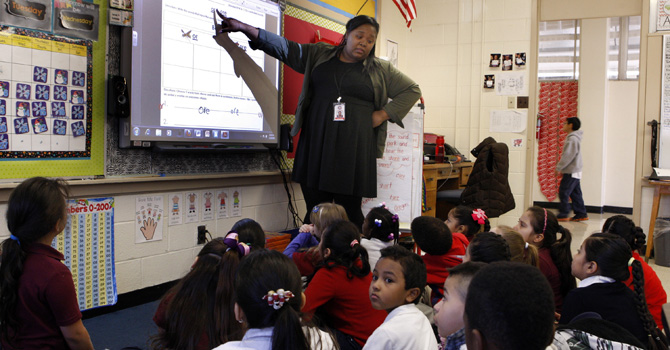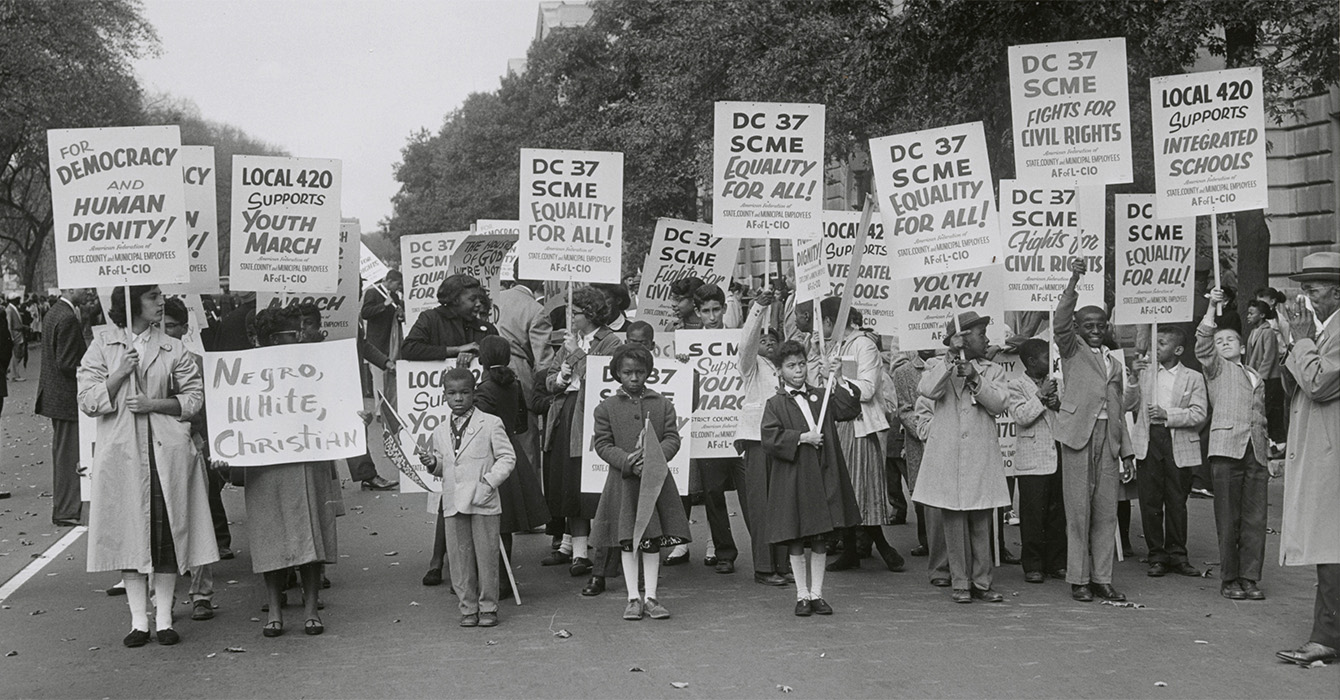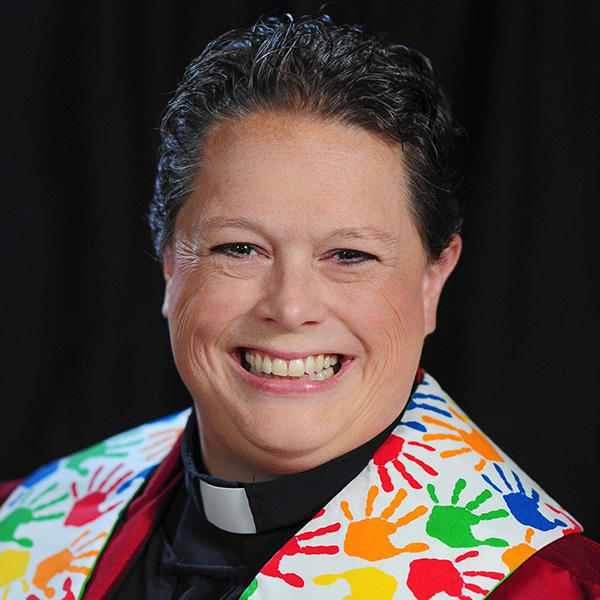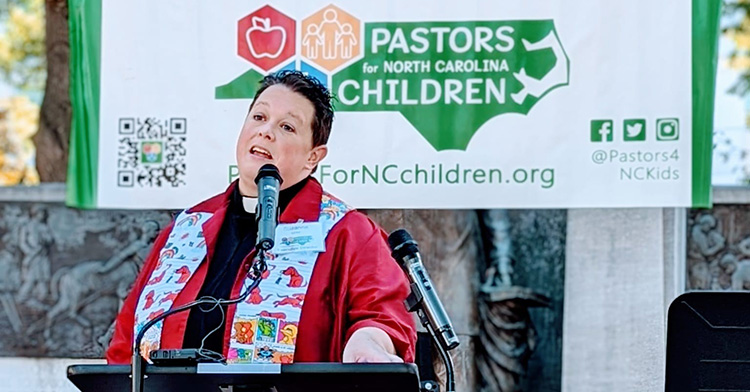They prepare for their mission by meeting regularly for more than a year in the basement of an old Baptist church in Midtown Memphis.
“America is not short on information about the gospel,” says David Montague, a lanky, laconic former missionary, to the several dozen young adults in the room. “It is short on demonstrations of the power of the gospel.”
Montague says he wants them to find ways to share the good news about the Bible and Jesus and the redemptive and sustaining power of the Holy Spirit. But he doesn’t want them to preach. He wants them to teach.
He wants them to think about curriculum and classroom management and the redemptive and sustaining power of a good lesson plan, to see teaching “as a vocational response to the gospel and the work of the church to glorify God by bringing justice to the poor and oppressed.”
That’s the mission of the Memphis Teacher Residency, Montague’s faith-based teacher training program that is seeking to transform low-performing schools in impoverished urban neighborhoods into bastions of academic excellence.
Like Teach For America, which also has a large presence in Memphis, MTR seeks to recruit, train and support outstanding and primarily young urban educators. What makes MTR different is its mission to do that “within a Christian context.”
“As a response to the Gospel mandate to love our neighbors as ourselves, MTR will provide students in partner low-income Memphis neighborhoods with the same, or better, quality of education as is available to any student in Memphis,” the organization proclaims.
MTR’s founders believe that academic achievement gaps are biblically unjust. That’s why Montague, who spent 15 years as a stockbroker, has spent the past five years brokering a deliberate but delicate reconciliation between church and state here in the classrooms of Memphis.
“You don’t have to talk about the love and compassion and mercy of Christ to demonstrate it. Becoming the best math teacher a kid’s ever had is a valid response to the gospel.”
David Montague
Across America, decades of official segregation led to official desegregation in the early 1970s, followed by decades of unofficial resegregation by race and class, often aided and abetted by faith-based private schools.
Today, the population of Memphis is about 62 percent black and 35 percent white. But enrollment in the city’s public schools is about 88 percent black and 8 percent white. Nearly half of the city’s public schools are 99 to 100 percent black, and more than 8 in 10 students in those schools qualify for free or reduced-price lunches.
Montague is under no illusion that Christians who have rejected public schools for decades for whatever reasons are going to return en masse with their children. But he does believe in the biblical obligation to support “the least of these,” which in the context of education he sees as public schools in the most distressed neighborhoods.
“You don’t have to talk about the love and compassion and mercy of Christ to demonstrate it,” Montague said. “Becoming the best math teacher a kid’s ever had is a valid response to the gospel.”
Mission is what you do
Emily Vassar wants to serve God and Memphis by becoming the best math teacher any public school kid has ever had. That’s why the former youth minister joined the Memphis Teacher Residency.
Vassar, 35, grew up in nearby Manila, Arkansas, a small Delta town where she learned to love math and the Lord. She helped her high school math teacher with tutoring and lessons and thought about becoming a teacher herself. But she felt a call to ministry.
After graduating from Union University, a Southern Baptist school near Memphis, Vassar took a job as a youth minister in Seattle, Washington. Eventually, she began to wonder whether she was following the right call in the wrong setting.

she decided she could serve Christ better as a teacher and applied to MTR in 2009.
“There’s nothing more important than the education of our kids, but I want to do it in a way that represents Christ, and I didn’t think I could do that in a public school setting,” said Vassar, MTR’s first applicant in 2009.
“When I was growing up,” she said, “a mission was about what you said, not what you did. MTR has shown me how I can represent Christ in a positive way, legally, responsibly and respectfully, rather than the old Bible-beating, ‘turn or burn’ approach we’ve all seen. Actions speak louder than words.”
Montague calls it a theology of work, noting that Jesus spent more time helping and healing others than just talking to them.
“You don’t have to talk about Jesus to be Jesus to people,” he said. Montague instructs MTR students that if they want to evangelize, they need to find another program.
“We can bring glory to God by the life we live,” he said. “We can do God’s work by flooding low-performing schools with potentially effective teachers who serve God by serving others.”
How to shape imagination
The Memphis Teacher Residency uses instruction, experience and community. What strategies do you use to form employees and constituents?
Montague, 48, majored in finance at Southern Methodist University. He left the corporate world in 2000 to run a Memphis nonprofit ministry called Service Over Self, which helps repair and restore the homes of poor and elderly residents in the Binghampton neighborhood.
Montague joined Campus Crusade for Christ in 2006 and spent two years as a teaching missionary in China. He returned to Memphis in 2008 and began looking for a way to bring a mission focus to inner-city teaching. A year later, he launched MTR, a faith-based version of a national program called Urban Teacher Residency United.

MTR’s participants begin their service with a four-year training program set up like a medical residency. Residents serve a 12-month internship, earning $1,000 a month while studying for a master’s degree in urban education from Union University.
Under an agreement with the local school district, interns are paired with mentor teachers in a yearlong apprenticeship in a Memphis classroom. They spend four days each week in the classroom, then two days taking master’s-level classes in the church basement.
The large room, once a youth Sunday school classroom, is filled with folding tables, computer stations and smartboards. When they’re not taking classes or having group discussions with Montague and other MTR staff, the students use the room in the evenings and on weekends to study or socialize.
Each resident costs MTR $50,000, funds provided entirely by local philanthropists and foundations. Graduates continue to be mentored and coached by experienced teachers and MTR staff and to meet regularly for professional development.
In return, each promises to teach at least three years in one of 29 MTR partner schools, which are part of what they call a "feeder pattern." The goal of sending MTR teachers to the feeder schools is to provide students with excellent teachers from kindergarten through high school.
MTR graduates are not guaranteed a job, even after a successful internship. But graduates have not found that to be a problem.
“We have never had anyone not hired,” Montague said. “In our contract, we state that if you make a good-faith effort at getting hired and cannot find a job, we do not hold you responsible for that year’s repayment. It’s a risk, but risk is always a part of Christian mission.”
That sense of mission makes all the difference for Robin Henderson, MTR’s director.
Teaching in large, urban systems “is too hard, too demanding not to have a sense of mission about it,” said Henderson, a former Indiana public school teacher and an ordained AME Church minister.
“You can’t just hand inner-city children education on a platter. You have to know the obstacles they face just getting to school every day. You have to know the real-world poverty and violence in their lives outside the classroom and the baggage they bring to the classroom. You have to see urban education as a calling.”
Being with others
Frank Jemison didn’t see urban education as a Christian mission and calling until his senior year at Duke University. He took a class called “Ethics in an Unjust World,” taught by Samuel Wells, then the dean of Duke University Chapel.
“The class was based around a short essay Dean Wells had written called ‘The Nazareth Manifesto,’” Jemison said. “The basic idea is that there are three primary ways to interact with people across major social, economic or racial barriers: we can work for, work with or be with.”
Wells observed that Jesus spent 30 years of his life being with others, three years of his life working with others and only one week of his life working for others.
“Dean Wells said that we should consider those percentages,” Jemison said. “I raised my hand and asked, ‘Well, we go to Duke. We have this great education, these skills and abilities. I mean, I see the importance of this “being with” stuff, but we don’t want to just throw this all away, do we?’
“Dean Wells smiled and said, ‘I can understand your dilemma. I mean, your skills really are truly impressive, but Jesus was the Son of God. So there’s that.’ I wanted to climb under the carpet. It was the most humbling and one of the most important moments of my life.”
Jemison, 27, is one of 132 MTR graduates since 2009. Of those, 125 are currently teaching in Memphis, all of them in urban schools, and all but five in public schools. That doesn’t include 60 interns in the 2014-15 class, including about 20 from AmeriCorps.
After five years, results are mixed but generally positive. MTR graduates are performing as well as their better-known Teach For America colleagues.
For several years in a row, MTR (and TFA) “have consistently produced teachers that are outperforming … other teachers in the state,” according to a 2014 report by the Tennessee Higher Education Commission.

Residency program. She observes teachers and provides feedback and support.
Student test scores for MTR teachers are generally higher than other teachers statewide in high school subjects -- although generally lower in middle school reading and social studies.
Montague believes that the key to MTR’s high retention rate and long-term success will be its partnerships with other faith-based nonprofits.
“This isn’t just about training effective teachers,” Montague said. “This is about restoring communities by building relationships. Education is just one piece in the restoration of a neighborhood.”
He referred to the “creation mandate” in Genesis 1:28.
“God began the work of creation, but he tasked the people called the church to continue the work of creation,” he said. “Christians are not called to run away from dysfunction; they’re called to run into it and bring peace, love, joy, integrity and harmony.”
Jemison, who graduated from Duke in 2010 with a major in public policy, said he was drawn to MTR’s community-building approach to teaching. After his MTR internship year in 2011, he got a job teaching third-grade math at Cornerstone Prep.
The charter school is in the same Binghampton neighborhood where Montague led Service Over Self. It’s also home to two other large and influential nonprofits, the Binghampton Development Corporation, led by Montague’s brother, Robert, and Christ Community Health Services.
“MTR only goes into neighborhoods where there are already community development programs with which we can partner, because education is only one piece of the puzzle,” Jemison said.
“If a neighborhood has a great school but poor housing, no health care, no healthy food, no jobs, no transportation, that great school isn’t going to make that much of a difference,” he said. “That is why it has to happen in the larger community-development context.”
Living and teaching together
Kathryn McRitchie, who joined MTR as a teaching coach in 2011, was drawn to the organization’s community building in another way. After graduating from college in 2003, she came home to Memphis and taught for a year in a high-achieving middle school.
She felt unprepared and isolated.
During their first year in the program, all MTR interns live in a dormlike apartment complex. They study, worship and socialize together; they write lesson plans with each other and pray for each other.
“I was also frustrated with how hard it was to motivate students, as well as to meet their range of needs,” she said.
Her experience as a new teacher made her appreciate the MTR approach. MTR students are never alone. During their first year in the program, all MTR interns live in a 1950s-vintage dormlike apartment complex that also provides housing for Christian Brothers University next door.
MTR students study together, worship together and socialize together at nearby coffeehouses, parks and music halls. They write lesson plans with each other and pray for each other.
“Our students develop deep friendships and celebrate the victories and defeats of becoming teachers,” said McRitchie.
“Just this week, the wife of an MTR graduate and mentor had a baby. Within 24 hours, members of three different MTR cohorts visited and served the growing family, not because MTR mandated it, but because they just plain love each other.”
MTR interns and graduates also teach together, clustered within the 29 partner elementary, middle and high schools that serve six of the city’s most distressed neighborhoods -- Alcy Ball, Binghampton, Frayser, Graham Heights (Kingsbury), Mitchell Heights and Orange Mound.
Montague and other MTR leaders have developed good working relationships with the principals in those neighborhoods.

Berclair Elementary School is in the Graham Heights area, one of the most diverse schools and neighborhoods in the city. Six in 10 Berclair students speak English as a second language. Nine in 10 get a free lunch.
"This is a very challenging environment for even the most experienced teachers," said Principal Sam Shaw. This school year, Shaw is employing three MTR graduates and five interns. Students of one 5th-grade MTR teacher posted the highest test score gains in the school.
"They have a remarkable support system," Shaw said. "Their students have great test scores. And they have something you can't buy: Passion. They aren't just working to pay off student loans. They are committed to urban education and passionate about this being their mission."
MTR leaders say it’s too soon to know how much impact the program is having in distressed neighborhoods such as Kingsbury and Binghampton.
“I believe MTR has this once-in-a-lifetime opportunity to transform education one school and one feeder pattern at a time,” Montague said.
“And in doing so, we have the opportunity and potential to transform and redeem public education in Memphis for God’s glory,” he said. “And in doing this work we wish to show that God is real and powerful and faithful to his promises to those in need.”
Vassar believes it, too. She’s now in her sixth year of teaching algebra at Kingsbury High School, one of the city’s most diverse schools. It’s the same school where she served her internship. Not long ago, she bought a house in the neighborhood.
“My biggest fear about teaching in Memphis was wondering how I was going to relate to these urban kids. I’m just a country girl,” Vassar said. “It turns out, kids are just kids. Now I can’t imagine doing anything else anywhere else.”
Questions to consider
Questions to consider
- The Memphis Teacher Residency program combines theory, practice and support. How do you form your employees and constituents? Does your approach include instruction, experience and community?
- MTR is dedicated to training teachers who are excellent and can have an immediate impact. Does your organization demand excellence from the people who carry out its mission? How do you measure it?
- Community, in the form of mentors and peers, is a key part of MTR’s teacher formation. How could you foster community among people you are teaching and training?
- MTR's leaders believe teaching is a vocational response to the gospel. How do you equip your community members to identify and live out their vocations?













